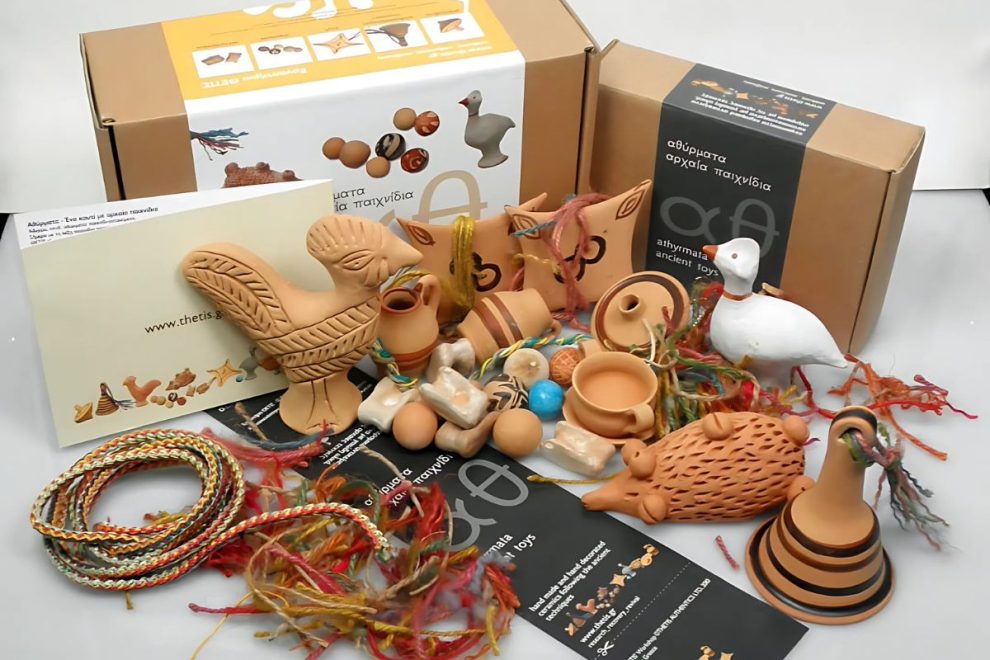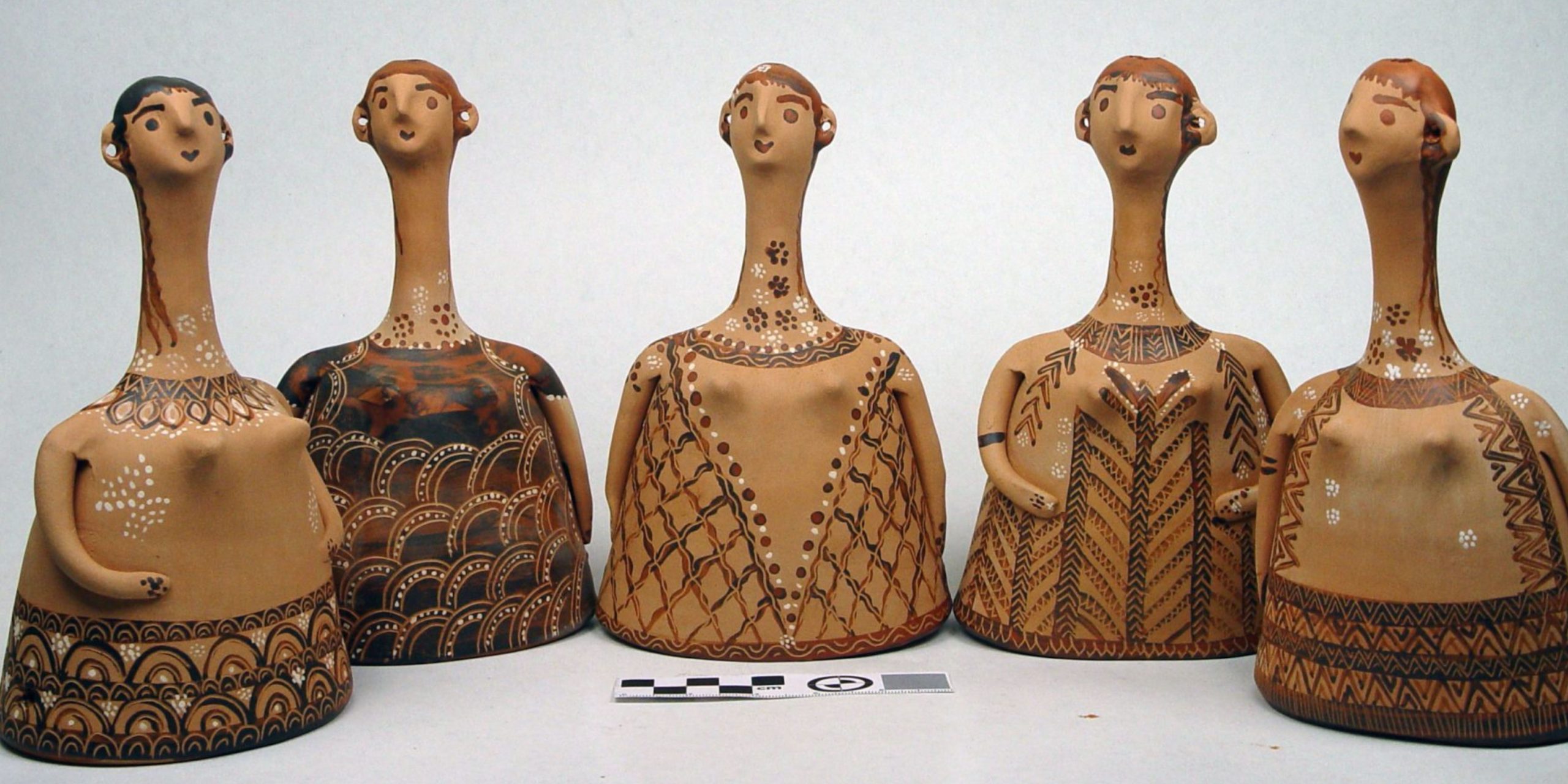
This blog post looks into the interesting toys found in ancient Greece.
Key Highlights
- A Glimpse into the Past: Discover the fascinating world of toys in ancient Greece, offering a unique perspective on childhood and society.
- Beyond Simple Playthings: Explore how toys reflected cultural beliefs, societal roles, and even religious practices.
- From Dolls to Dice: Uncover a diverse range of toys, including dolls, rattles, board games, and even miniature chariots.
- Materials and Craftsmanship: Learn about the materials used in toy making, from humble clay to luxurious ivory, highlighting the skill of ancient artisans.
- Play as a Learning Tool: Understand the educational value of toys in ancient Greece, fostering skills and preparing children for adulthood.
Playing games has played an important role in Greek society. Since ancient times, toys and games have been a source of pleasure and have fired the imagination of generations of children. This blog post looks into the interesting toys found in ancient Greece. It gives us a glimpse into the lives of Greek children and what was important to them. From simple terra cotta dolls to detailed board games, these toys show us the skill and creativity of ancient Greek society.
The Evolution of Toys in Ancient Greece
The types of toys and games that children enjoyed in ancient Greece changed over time. This change was due to shifts in society, the resources they had, and their cultural beliefs. Some games stayed popular for many years, while new toys appeared as skills improved or societal norms changed. In the beginning, toys were often simple and made from easy-to-find materials like clay, wood, and bone. As Greece grew wealthier, toys became more detailed and showed better craftsmanship. By finding these old toys, we can learn more about how children lived in ancient Greece.
Origins and Historical Significance
Toys have been found in archaeological sites all over Greece. Some of these toys date back to the Mycenaean period, around 1600-1100 BC. This shows that toy making has a long history in Greece, even before the classical era. It’s interesting to note that toys are shown in different types of ancient Greek art like pottery, sculptures, and funerary items. One important example is the toy chariots found in burial sites, especially in graves thought to belong to young boys. This practice hints at a belief in the afterlife and the wish to give children familiar objects even after they are gone. Also, the discovery of dolls with movable limbs from the 8th century BC shows the skill of ancient Greek craftsmen. They paid great attention to detail, even when making items meant for play.
Popular Materials Used in Toy Making
The toys in ancient Greece were crafted with care and attention to detail, using a variety of popular materials. Archaeologists have uncovered evidence of terracotta figurines, often depicting animals like pigs, with movable limbs that added an interactive element to playtime. These terra cotta creations provided insight into the creativity and craftsmanship of ancient Greek toy makers. Additionally, toys made from human hair and wax were also prevalent, showcasing the diverse materials used for toy production in that era. These toys not only entertained children but also served as tools for learning and development, reflecting the culture and values of ancient Greek society.
How did Toys in Ancient Greece Influence Children’s Development
Toys in ancient Greece were not just for play. They were important for helping children grow and learn. Toys gave kids chances to play with others, be creative, and learn cultural values early on. Dolls were especially important for young girls. These dolls looked like adult women and had fancy clothes and jewelry. Playing with dolls let girls act like adults. They practiced taking care of babies and managing homes, getting ready for their future roles as wives and mothers. Both boys and girls played games of skill, like knucklebones and marbles. These games helped improve their coordination, thinking, and precision. Some toys had special meanings too. They linked kids to their religious beliefs and social customs. For example, young girls would give their childhood dolls, often made of terra cotta or wax, to the goddess Artemis as a way to mark their growth into adulthood.
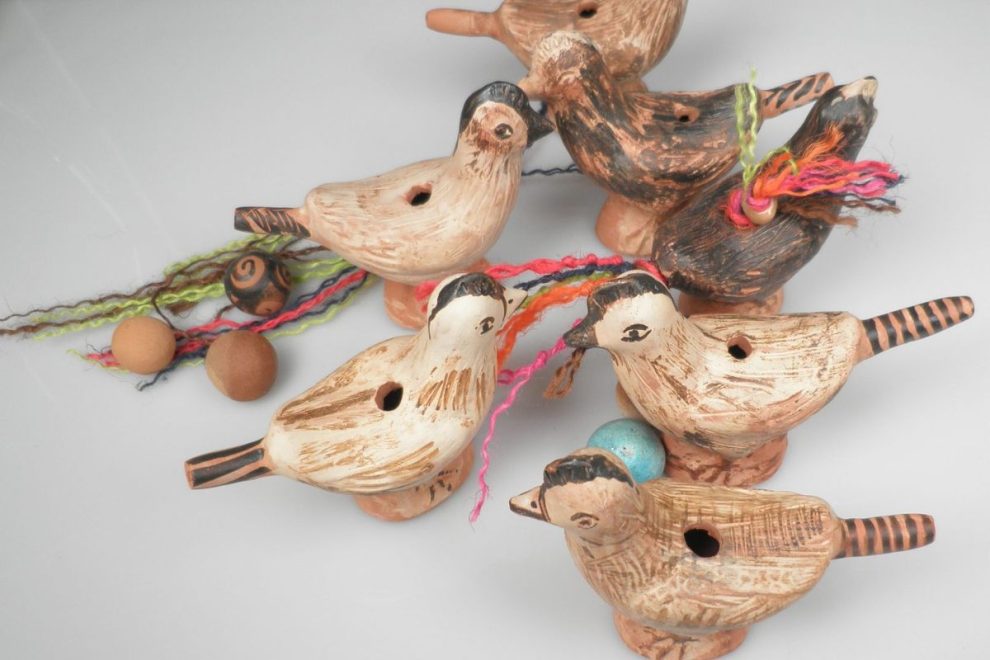
Types of Toys and Games in Ancient Greece
The playtime in ancient Greece was rich and varied, much like their society. There were many toys and games to entertain, teach, and involve children of all ages. Kids could play with simple rattles and spinning tops. They also had fun with more complex board games and small chariots. Clearly, there was a lot to choose from for playful activities.
Educational Toys for the Young
Education was very important in ancient Greek society. Toys were seen as tools that could help with learning. Even simple toys enjoyed by children had a second job. They helped develop thinking skills while also being fun. Think about the abacus. It was a counting tool with beads on rods. Greek children used it to learn basic math. Then, there were astragali. These small bones came from the legs of sheep or goats. They were used for games of chance, but also helped teach probability and strategy. These games gave kids skills that would help them when they grew up, showing how practical play was in ancient Greece.
Leisure Games for Adults and Children
Games and fun activities were very important in ancient Greek society. They provided entertainment and helped people interact with each other. Some games were just for adults, while others could be played by people of all ages. This helped bring together different generations.
Astragali, which are small bones, were used both as toys for children and as dice for popular adult games. People often bet on these games, adding excitement and a bit of risk. Board games like petteia and kykloi were popular with adults too. These games needed strategy and skill, and they gave people a chance to take a break from their daily lives. They also created opportunities for socializing and friendly competition.
Toys in Ancient Greece Exclusive to Girls or Boys
In ancient Greece, many toys were fun for both boys and girls. However, some toys were very specific to their gender, showing what society expected of them. Boys often played with toys related to battle and manly activities. They liked mini chariots, swords, and toy soldiers. These toys helped them picture themselves as warriors and leaders in the future.
Girls received toys that helped them prepare for being wives and mothers later in life. Dolls, made from terra cotta or wax, were important to young girls. These dolls wore tiny clothes and jewelry like adults, allowing girls to imitate their mothers and learn about home life. Additionally, animal figurines, especially those shaped like pigs, had religious meanings. They symbolized fertility and were often given to Artemis, the goddess of hunting and childbirth. As girls grew into young women, they would give away their childhood dolls to Artemis. This act symbolized saying goodbye to childhood and stepping into adulthood.
Music in Ancient Greece
Ancient Greece, a cradle of civilization, not only fostered advancements in philosophy and the arts but also had a rich musical culture. In this era, music played a vital role in religious ceremonies, festivals, and social gatherings. The Greeks believed that music had the power to influence emotions and behaviors. Ancient Greek Music Instruments such as the lyre, a stringed instrument played by the mythical god Apollo, and the aulos, a double-piped flute, were commonly used in performances. Music in ancient Greece was a significant aspect of education, being taught alongside other subjects like mathematics and philosophy. This harmonious blend of art and knowledge contributed to the holistic development of Greek children.
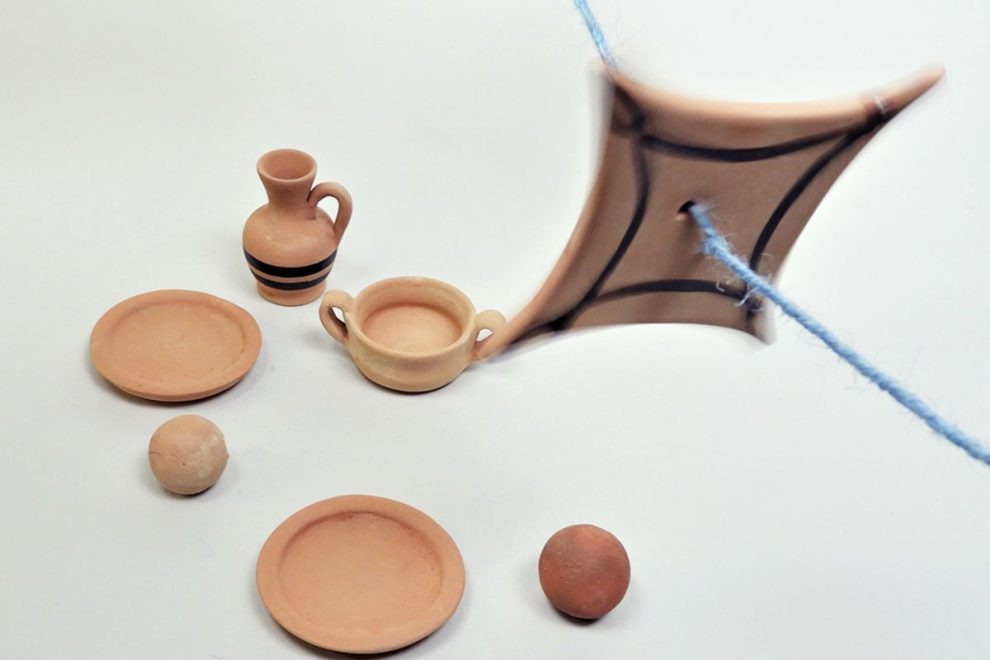
How did “Games” Define the Lives of Ancient Greeks
The ancient Greeks considered playing games a means of self-education, which is why they attached great importance to their role. They realized the value of team games and believed that they could be used to improve society. For this reason, games constituted an essential part of children’s education.
They also thought that playing games was important for adults. They thus spent a lot of their free time playing one-player and team games. In ancient Greece, many team games were played in the yards and on the street and were governed by rules that were faithfully followed by all. Playing games develops companionship, exercises the body, cultivates the spirit, teaches children and adults to respect rules, and thus to respect and obey the laws of their city.
“Athyrmata”, toys in ancient greek, were made of soil and water in other words of clay or wood. Firing hardened the clay transforming it into permanent ceramic material. Some of them were spinning tops, some were dolls and some were animal figurines. Clay “Athyrmata” survived through millennia whereas wooden toys did not.
Famous Ancient Greeks and their Views on Toys and Games
Plato argues that parents should encourage their children to play at least to the age of six, with whatever toys they wanted and in whatever way they wanted. He further argues that toys and games should have some learning orientation related to a profession, which would thus prepare children for their future life.
Aristotle advised parents to give their children as many original toys as possible so that children develop an attachment to them and at the same time help them develop creative imagination.
Hippocrates advised adults to run in a circle to better maintain their physical health and encourages children to play. Julius Pollux in his “Onomasticon” describes fifty team games and refers specifically to those played by boys and those played by girls. The boys played outdoor games such as chasing, hiding, knucklebones, ball, wreath, and spinning top. The girls played inside the house with clay or wax dolls, called “plaggonas”, which they dressed in clothes they had made themselves. Balls, wreaths, and tiny household items were also very common.
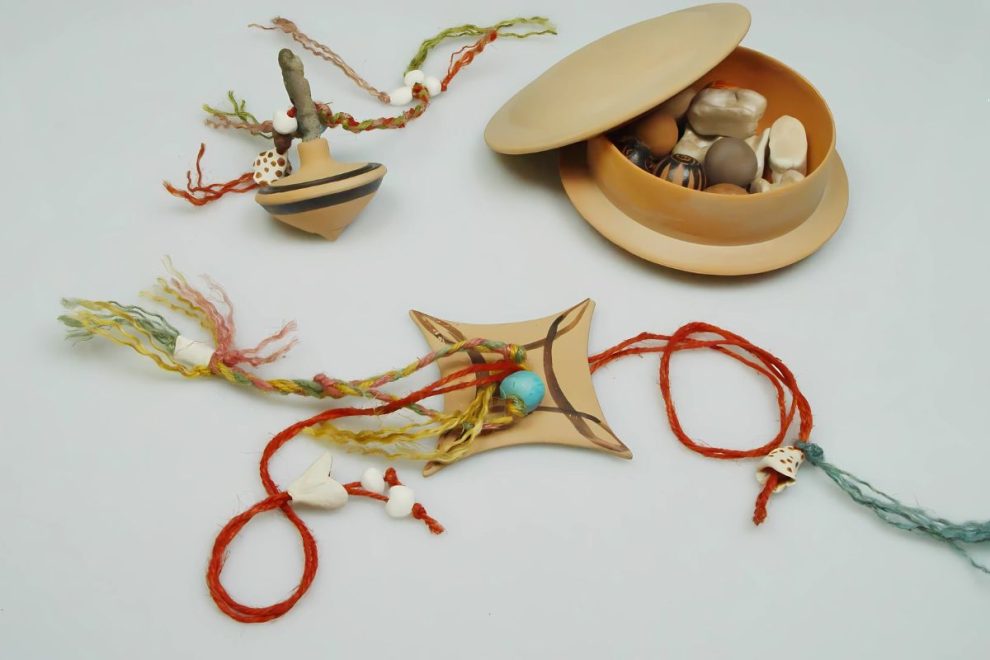
Difference between a ‘Game’ and a ‘Toy’
According to diffeology.com :
What is Considered a Game
“A game is a structured form of play, usually undertaken for entertainment or fun and sometimes used as an educational tool. Games are distinct from work, which is usually carried out for remuneration, and from art, which is more often an expression of aesthetic or ideological elements. In most games, the rules are more significant than the components. Playing a game requires thinking and problem solving, and knowledge of rules is essential if you are going to win. Games may be played endlessly, providing people with the sense that they are progressing, or they may be played one at a time, providing a sense of completion. In any case, games are built around a set of rules that are regularly tested and refined, creating a continuous experience”.
What is Considered a Toy
“A toy is an item that is used in play, especially one designed for such use. It is mainly intended for use by children, though it may also be marketed to adults under certain circumstances. Playing with toys can be an enjoyable means of training young children for life in society. Different materials like wood, clay, and paper, are used to make toys. A toy is an object that is used for play and is not necessarily intended for becoming fully involved in the play activity itself. These objects may have been designed primarily for play, or they may have been made with additional purposes in mind, such as instructional or symbolic value”.
Toys in ancient Greece give us a unique view of the past. They show us more than just fun; they also tell us about education and culture. From simple handmade toys to more complex games, each toy had its own importance in shaping how children grew up. The different materials used showed skill and creativity, which helped kids develop. When we look at the importance of toys in ancient Greek society, we see how play was linked to learning and social life. These lessons remind us of how valuable play is for young minds. Let’s keep discovering the legacy of these ancient Greek toys and games, which connect us to our common human story.
Step into Attic Black’s world of ancient Greek toys and select the ones that are most suitable for you and your children. We have a broad selection of toys that were famous in antiquity, such as the iynx, knucklebones, rattles, spinning tops, dolls, and more. Click here to view all of our Fun Learning items!
For further information, or for tailor-made options, send us your request
For further information, or for tailor-made options, send us your request at atticblack@thetis.gr or reach us at +30 2103232005

